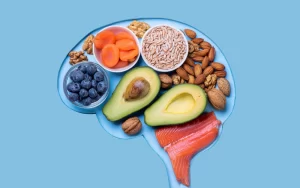Many people suffer from stress and anxiety, which are typical and most common mental health issues. They can be useful in some instances as well because they can inspire people to take action and overcome obstacles. They can also be used to indicate that something is incorrect and needs to be addressed. Chronic or excessive worry and stress, on the other hand, can have a severe impact on an individual’s physical and mental health. To avoid these detrimental effects, it is critical to develop healthy strategies to manage and minimize anxiety and stress. Work and financial demands, marital troubles, and big life changes can all contribute to them.
Stress and anxiety are frequent mental health issues that can be brought on by a number of circumstances. Among the most prevalent explanations are the following:
- Life changing events
- Financial concerns
- Work-related stress
- Relationship troubles
- Trauma-related stress
- Social isolation
- Physical and Psychological illnesses
- Genetics
It is critical to deal with stress and worry. Stress and anxiety, if left untreated, can lead to a variety of physical and mental health issues. They can raise the risk of cardiovascular disease, high blood pressure, and stroke. Stress and anxiety can induce digestive difficulties such as stomach ulcers, acid reflux, and irritable bowel syndrome. Stress and worry can cause depression, difficulties sleeping, and problems focusing, among other things. Prolonged stress and worry can also compromise the immune system, rendering a person more vulnerable to physical ailments. Furthermore, stress and anxiety can lead to the development of undesirable coping methods such as substance addiction, overeating, and social avoidance. These problems can eventually lead to a reduction in general quality of life and well-being. Some of the common effects of Stress and anxiety are:
- Immune system suppression: When a person is stressed, the body produces stress chemicals like cortisol and adrenaline, which depress the immune system. This can impair the body’s capacity to combat infections and diseases, leaving a person more susceptible to illness. Furthermore, prolonged stress can cause chronic inflammation, which has been related to a variety of chronic ailments such as heart disease, diabetes, and cancer.
- Sleep-related problems: Stress and worry can lead to a number of sleep-related issues, such as difficulties getting asleep, difficulty remaining asleep, and insomnia. Stress and worry can induce racing thoughts, making it harder to relax and fall asleep. Cortisol and adrenaline, stress chemicals, can also make it difficult to sleep, resulting in insomnia or other sleep problems. They can also produce nightmares, night sweats, and other sleep disturbances. Stress and worry can exacerbate pre-existing sleep abnormalities such as sleep apnea.
- Depression: Depression, a significant mental health disease characterized by persistent feelings of melancholy, despair, and loss of interest in activities, can be caused by stress and worry. Anxiety and stress can exacerbate depressive symptoms. Long-term stress and worry can lead to physical and mental weariness, as well as emotions of hopelessness and powerlessness. Furthermore, stress and worry can alter brain chemistry, which might contribute to the development of depression.
Substance abuse: Stress and worry can lead to the formation of undesirable coping strategies, such as substance abuse. When people are stressed or anxious, they may resort to drugs or alcohol to numb their feelings or to cope with their symptoms. Some people may use drugs or alcohol to momentarily relieve tension or worry, but this can evolve to a substance use problem over time. Substance misuse can also exacerbate pre-existing tension and anxiety, resulting in a vicious cycle of substance abuse and mental misery.

How to Manage Stress and Anxiety
Managing stress and anxiety may help people enhance their general well-being, maintain good relationships, and cope with life’s obstacles. It can also improve one’s quality of life and capacity to enjoy daily activities, boost one’s resilience and self-esteem, and improve one’s general physical health.
Stress and anxiety can be managed in a variety of methods, a few of them are mentioned below.
Managing Stress & Anxiety Guideline
- Dietary Modification: A well-balanced diet can assist in maintaining a strong immune system and help repair cells. It gives you the extra energy you need to deal with difficult situations. According to preliminary study, some meals such as polyunsaturated fats, notably omega-3 fats, and vegetables may assist to manage cortisol levels. Transitioning to a more nutrient-dense diet may help some people reduce their anxiety symptoms. Overall food consumption, in conjunction with treatment and medication, can be an effective approach for anxiety control. Stress and anxiety may be reduced by making these healthy modifications to your diet, exercise regimen, and sleeping patterns.
- Exercise: Exercise is also important for maintaining mental health and can help alleviate stress and anxiety. According to studies, it is very effective in reducing fatigue, increasing alertness and concentration, and improving overall cognitive function. This is especially useful if stress and anxiety has sapped your energy or ability to focus. When they affects the brain and its many nerve connections, the rest of the body is affected as well. Alternatively, if your body feels better, your mind will fall in line. Endorphins, which are substances in the brain that serve as natural painkillers, are released during exercise and other types of physical activity. They also improve sleep quality, which reduces stress. Physical activity on a regular basis can help decrease stress and anxiety, enhance mood, and promote self-esteem. It is not only good for your psychological help, but exercise on daily basis also help to keep you physically fit.
- Relaxation Techniques: Relaxation methods are activities that aid in the elicitation of the body’s “relaxation response,” which is manifested by slower breathing, lower blood pressure, and a slower heart rate. Relaxation techniques treat anxiety from the body’s perspective by lowering muscular tension, slowing breathing, and soothing the mind. Deep breathing, meditation, and yoga are all relaxation practices that can help decrease stress and anxiety. Taking a long walk in nature, or peaceful place in a week may have a long and relaxing effect on your overall health.
- Time management: Better time management can minimize your chances of burnout by giving you more time to rest and deal with other issues that might create mental, emotional, or physical suffering. You are less agitated and concerned since you have enough time to do your task. Good time management is required if you are to handle a large task without becoming overly stressed. When you have too much work to complete, time management can help you decrease long-term stress by providing you direction. It gives you more control over your journey and aids in increasing your productivity.
- Social Support systems: Socialization raises levels of a hormone that reduces anxiety and makes us feel more secure in our capacity to cope with challenges. Spending time with people also focuses our energy outward. Strong interactions with friends and family members can also boost your attitude, perspective, and mental well-being. According to research, those who have a high amount of social support appear to be more robust in stressful situations. Social support offers physical and psychological benefits to persons who are confronted with difficult physical and psycho-social experiences, and it is seen as a role in minimizing psychological suffering when confronted with stressful occurrences.
- Avoiding or limiting alcohol: Alcohol and other drugs has a depressant effect. They slows down activities in your brain and central nervous system, making you feel less constrained at first. You may feel more calm in the short term, but these benefits will fade soon. In fact, if you’re anxious, drinking alcohol may exacerbate your symptoms. Alcohol can have a detrimental impact on one’s thoughts, feelings, and behaviours, and can lead to the development of, or aggravate, pre-existing mental health problems.
- Therapy: Cognitive behavioural treatment (CBT), often known as talk therapy or psychological counselling, is working with a therapist to minimize your anxiety symptoms. It has the potential to be an effective anxiety and stress therapy. It is one of the most effective type of psychotherapy for anxiety and stress problems. Hundreds of research have indicated that psychotherapy assists people in making good life changes. According to reviews of these research, over 75% of persons who attend psychotherapy improve in some way.
- Self-Care Management: Self-care has been clinically demonstrated to alleviate or eliminate anxiety and sadness, reduce stress, boost happiness, and other benefits. It can assist you in adapting to changes, developing solid connections, and recovering from setbacks. Sleep and rest, remain hydrated, eat healthily, exercise, and be physically active as much as possible. Maintain a daily plan that works for you, including time for sleep, food, activity, self-care, and work. This can contribute to a greater sense of security and predictability.
Conclusion
Stress and anxiety must be managed in order to increase general well-being, maintain good relationships, and improve one’s capacity to deal with life’s problems. It’s also crucial to remember that worry and anxiety are natural parts of life, and it’s perfectly fine to seek assistance. You can handle stress and anxiety and preserve your mental health by following these tips. Individuals must seek treatment if they are having mental health issues, and society must continue to de-stigmatize mental illness and give support and services to those in need. It is crucial to remember that stress and anxiety can be induced by a variety of reasons, and what causes stress and anxiety in one person may not generate stress and anxiety in another.
Elumind Centres for Brain Excellence is an integrated mental health centre offering solutions that can help you with your mental/brain health needs. To start your journey, book your FREE 15-MINUTE PHONE CONSULTATION. We are here for you.








